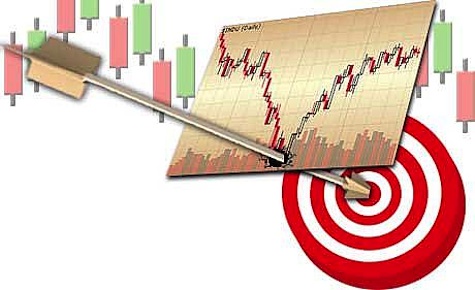What Stock to Buy? Hey, Mom, Don’t Ask Me
By N. GREGORY MANKIW
OVER the last few weeks, as the stock market has reached new highs, my thoughts have turned to my 85-year-old mother.
“O.K. Mr. Smarty-Pants,” she often asks me, “what stock should I buy now?”
She first asked me this question when I was an undergraduate at
Princeton, majoring in economics. She asked again when I was a graduate
student at M.I.T., earning a Ph.D. in economics. And she has asked it
regularly during the last three decades when I have been an economics
professor at Harvard.
Unfortunately, she has never been happy with my answers, which are
usually evasive. Nothing in the toolbox of economists makes us good
stock pickers.
Yet we economists have written countless studies about the stock market. Here is a summary of what we know:
THE MARKET PROCESSES INFORMATION QUICKLY One prominent
theory of the stock market — the efficient markets hypothesis — explains
how answering my mother’s question would be a fool’s errand. If I knew
anything good about a company, that news would be incorporated into the
stock’s price before I had the chance to act on it. Unless you have
extraordinary insight or inside information, you should presume that no
stock is a better buy than any other.
This theory gained public attention in 1973 with the publication of “A Random Walk Down Wall Street,”
by Burton G. Malkiel, the Princeton economist. He suggested that
so-called expert money managers weren’t worth their cost and recommended
that investors buy low-cost index funds. Most economists I know follow
this advice.
PRICE MOVES ARE OFTEN INEXPLICABLE Even if changes in
stock prices are unpredictable, as efficient markets theory suggests, we
should be able to explain these changes after the fact. That is, we
should be able to identify the news that causes stock prices to rise and
fall. Sometimes we can, but often we can’t.
In 1981, Robert J. Shiller, a regular contributor to this column and an economics professor at Yale, published a paper
in The American Economic Review called, “Do Stock Prices Move Too Much
to Be Justified by Subsequent Changes in Dividends?” He argued that
stock prices were too volatile. In particular, they fluctuated much more
than a rational valuation of the underlying fundamentals would.
Mr. Shiller’s paper prompted a storm of controversy. My reading of the
subsequent academic literature is that his conclusions, though not all
his techniques, have survived the debate. Stock prices seem to have a
life of their own.
Advocates of market rationality now say that stock prices move in
response to changing risk premiums, though they can’t explain why risk
premiums move as they do. Others suggest that the market moves in
response to irrational waves of optimism and pessimism, what John
Maynard Keynes called the “animal spirits” of investors. Either approach
is really just an admission of economists’ ignorance about what moves
the market.
HOLDING STOCKS IS A GOOD BET The large, often
inexplicable movements in stock prices might deter someone from holding
stocks in the first place. Many Americans, even some with significant
financial assets, avoid stocks altogether. But doing so is a mistake, because the risk of holding stocks is amply rewarded.
In 1985, Rajnish Mehra and Edward C. Prescott, both now at Arizona State University, published a paper
in the Journal of Monetary Economics called “The Equity Premium: A
Puzzle.” They pointed out that over a long time span, stocks have
earned, on average, about 6 percent more per year than safe assets like Treasury bills.
This large premium, they said, is hard to explain with standard
economic models. Sure, stocks are risky, so you can never be certain
you’ll earn the premium, but they are not risky enough to justify such a
large expected return.
Since the paper was published, economists have made some limited
progress in explaining the equity premium. In any event, the large
premium has convinced most of us that stocks should be part of
everyone’s financial plan. I allocate 60 percent of my financial assets
to equities.
Stocks may be an especially good deal today. According to a recent study
by two economists at the Federal Reserve Bank of New York, given the
low level of interest rates, the equity premium now is the highest it
has been in 50 years.
DIVERSIFICATION IS ESSENTIAL Every time a company
experiences a catastrophic decline — consider Enron or Lehman Brothers —
reports emerge about employees who held most of their wealth in company
stock. These stories leave economists slapping their heads. If there is
one thing we know for sure, it is that sensible financial management
requires diversification.
So, if you have more than 5 percent of your assets in any one company,
call your broker and sell. Doing otherwise means exposing yourself to
extra risk without extra reward.
SMART INVESTORS THINK GLOBALLY One widely documented failure of diversification is what economists call home bias. People tend to invest disproportionately in their home country.
Most economists take a more global perspective. The United States
represents a bit under half of the world’s stock portfolio. Because
Europe, Japan and the emerging markets don’t move in lock step with the
United States, it makes sense to invest abroad as well.
Which brings me back to my mother’s question: If I could pick just one
stock for someone to buy, what would it be? I would now suggest
something like the Vanguard Total World Stock exchange-traded fund,
which started trading in 2008. In one package, you can get low cost and
maximal diversification. It may not be as exciting as trying to pick
the next Apple or Google, but you’ll sleep better at night.
